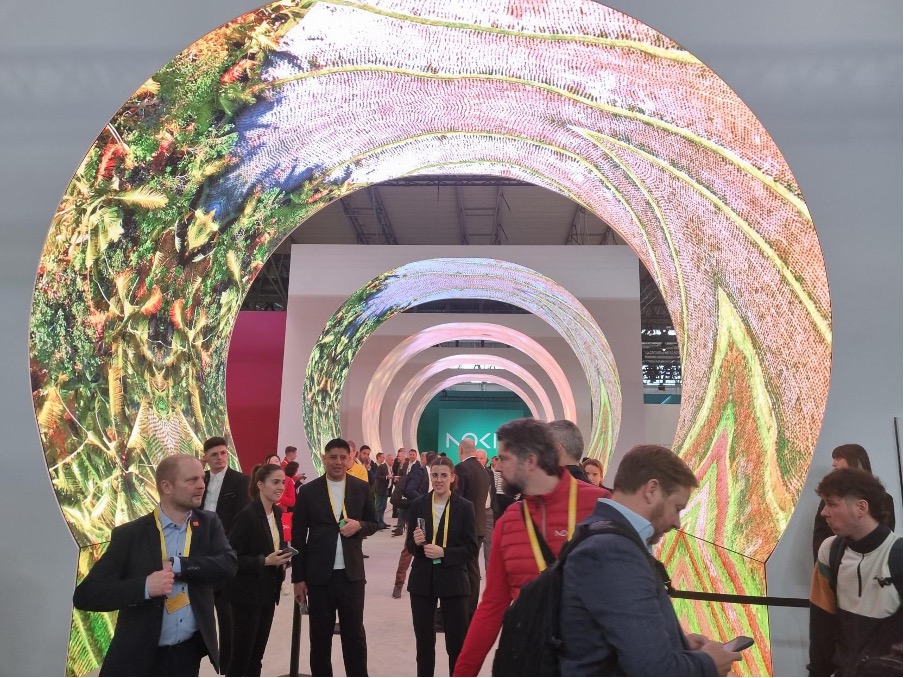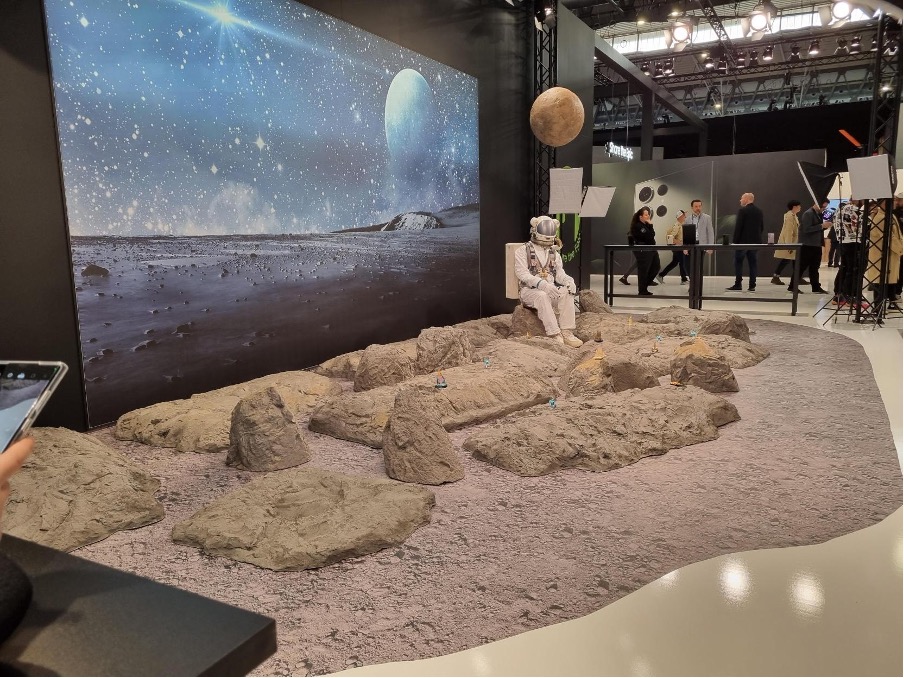It’s been quite the 10 days in my new role. It started with dinner and one of the nicest chats I’ve had in years with fellow tech industry comms professionals. We talked trust in tech over three lovely courses, and shared some amazing ideas about how we can continue representing the sector we love the best.
Back in the office, the team came together for an inspirational conversation about technology leadership and leaders. Listening to my colleagues share their professional and personal experiences of both, confirmed how lucky I am to be in the company of such smart, gifted and courageous individuals.
I then presented our tech trust findings to the GSMA’s Policy Group ahead of Mobile World Congress and later spent the first day walking the halls at the show. In rounding out the week, I was back in London talking trust with the good folks at Ofcom.
Though my step count is through the roof, it still didn’t top our monthly team step challenge! But on this this long walk towards tech trust and leadership, there were a few common questions that came-up.
Why does trust matter?
In short, we’ve found that stronger trust can mitigate risk and build resilience amongst customers, employees, policy makers, investors and the media.
Across four of the trust dimensions we measure, tech businesses are typically strongest on ‘Ability’ (being good at what you do) and less so on ethical drivers (Integrity, Dependability and Purpose) that have proven to be three times more impactful for building trust.
How can tech build trust as a force for good?
‘Purpose’ (having a positive societal impact) came up a lot in conversations throughout the week. It was also very much present on the signage and displays across the MWC show floor – especially the topics of environment and sustainability. Now, I’m no horticulturalist but definitely noticed fewer cars and more flora and fauna on the stands this year. The UN Sustainable Development Goals (SDGs) were front and centre on the screens of one of the talks I got to see.
Being seen to take action on the biggest challenges of our time is fast becoming table stakes. For me, tech leaders not only have the ability, but opportunity to move beyond competencies in product innovation to build societal competence in areas such as climate and inequality.

Why is the sector highly trusted yet emerging technologies less so?
In our trust dimensions, ‘Dependability’ is about keeping your promises. But when it comes to the big promises coming from the sector, it’s those emerging technologies such as AI, VR, IoT and Blockchain that have seen big declines in trust.
When we first tracked 5G as an emerging technology a few years ago, it experienced a similar challenge. Since then, it has moved into the trusted zone. Nonetheless, coming into MWC, I read several articles lamenting the yet-to-be-realised promise of 5G. Potentially a looming reputational risk?
For me, this ties back to the fourth trust dimension of ‘Integrity’ or being honest. Specifically, this is the persistent risk often illustrated in the Gartner Hypercycles, where tech hype can give people the impression there is an absence of truth.

So, what does it take to be more honest? Here I turn back to the main asks from people in our trust survey: educate on the benefits and downsides of new technologies. This is always a tricky one. As tech champions, we’re naturally inclined to focus on what’s cool. So, perhaps the way to think about it is our readiness to call out what’s not cool.
As we often see, downsides of technology typically come in how they are used rather than the tech itself. Knowing how misuse can happen and the steps that can be taken to prevent it can go a long way to adoption, acceptance and ultimately trust.
None of this is a straight path of course. In many ways, a new map may be needed for leadership in the tech sector.
Sat Dayal is Managing Director of Technology at Edelman UK




